Indigenous Knowledge in Modern Polar Science
MOSS LANDING, CALIFORNIA– In conjunction with the surge of social science projects in this year’s IPY, SCAR hosted a novel session on “The Role of Indigenous Knowledge in Modern Polar Science.” The presenters stressed giving traditional knowledge and indigenous people a voice in managing their own land, resources and fate in the future of climate change.
One IPY-sponsored project that is especially exciting for bringing indigenous knowledge into polar science is Sea Ice Knowledge and Use (SIKU) project: The ice we want our children to know.
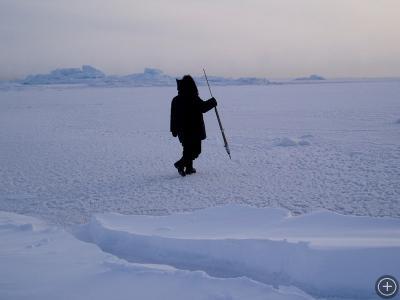
A hunter leading the way onto uiguaq (newly formed ice lip extending out from the floe-edge) and testing the ice. Photo courtesy of G. J. Laidler.
The SIKU project is one of several IPY projects aimed at documenting indigenous observations of environmental changes in the polar areas. This initiative brings together anthropologists, human geographers, sea ice and climate scientists, marine and ecosystem biologists from the U.S., Canada, Russia, Greenland, and France in partnership with almost two dozen indigenous communities in Alaska, Arctic Canada, the Russian Chukchi Peninsula, and Greenland in a concentrated effort to document use and knowledge of sea ice in the Arctic.
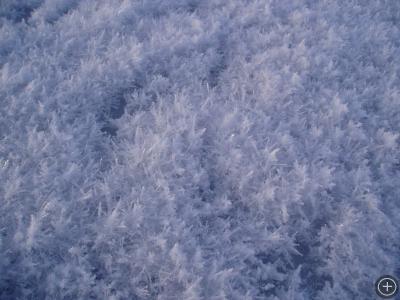
Qanngut (crystallized frost formations that form on thin ice) up close. Photo courtesy of G. J. Laidler.
Claudio Aporta, Assistant Professor at Carlton University and a researcher on the project, described how Arctic people depend on sea-ice for their persistence. “People are born on the sea ice, they build summer camps to live on the sea ice, they hunt on the sea ice, even kids play on the sea ice,” he said. People regularly cross the sea-ice and recreate trails year after year. It is these pathways, and people’s knowledge of their ice environment, that Aporta and his team are working on documenting. They use this knowledge in creating an atlas and database that Aporta described as “a new conception of map showing all dynamic features.”
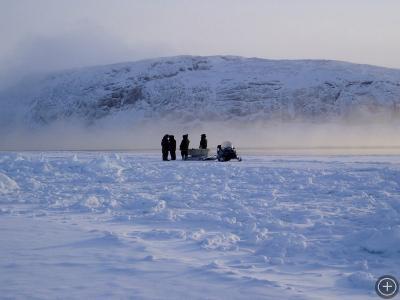
Hunters wait at the edge of a polynya (an area of open water surrounded by sea ice) near Cape Dorset, Nunavut, discussing a seal hunt. Current strength and direction is an important consideration, since seal retrieval is made with small boat launched off the ice edge. Photo courtesy of G. J. Laidler.
Local residents, elders, and community experts work together in the SIKU research. Collectively, they record daily sea ice and weather observations, collect local terms for sea ice and weather phenomena, document traditional ecological knowledge related to sea ice and sea ice use from local elders and experienced hunters, and search for historical records of sea ice conditions. Documenting these factors allows the researchers to interpret shifts in ice use patterns that may be caused by social and climate change. Most importantly, “Local people are taking a very active role in documenting their own use of the sea ice,” Aporta said, “ and securing knowledge for future generations.”


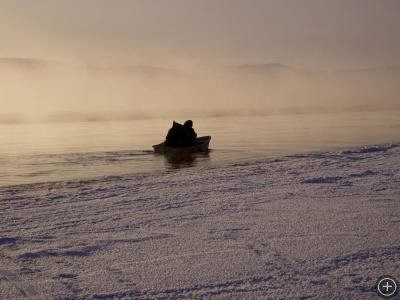



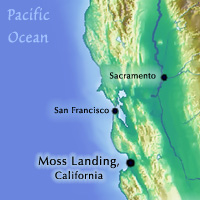





Interesting article. Thank you for posting. When did the SCAR session take place?
Hi Rosemarie,
The SCAR conference was July 8-11, 2008. Next year it will take place in late July in Japan.
see the SCAR website (www.scar.org) for more details.
-Cassandra